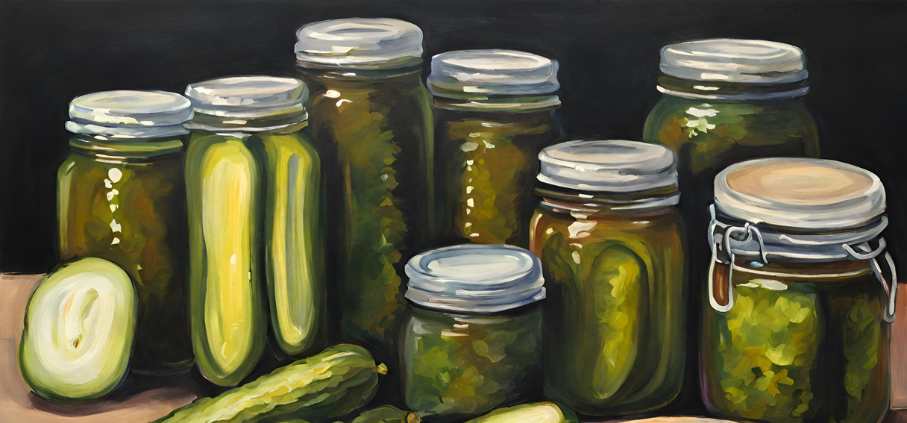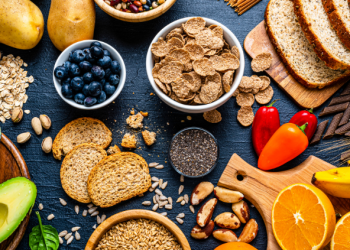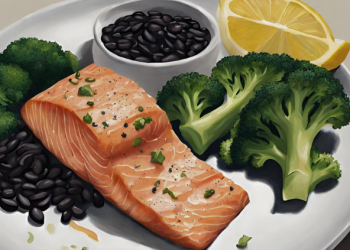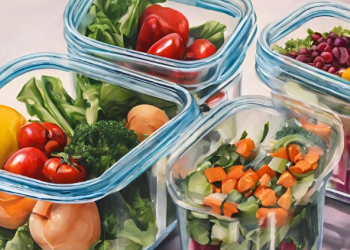In a Pickle? Unveiling Gut-Friendly Pickles for Your Health

By now, most people have heard about the extensive health benefits fermented foods provide. Fermented foods have become increasingly popular as research continues to reveal that their high concentration of probiotics can improve gut health, boost immunity, and enhance digestion.
“Pickles are fun, tangy, potentially health-promoting ways of eating cucumbers,” according to Dr. Marily Oppezzo, PhD, MS, Head of the Lifestyle Medicine Nutrition Pillar.
However, Dr. Oppezzo cautions that even though the beloved snack of pickles are thought to be fermented, not all of them are, hence, they don’t all have the health benefits.
Determining whether a particular pickle brand is fermented or not can pose a challenge. In this blog, we will delve into the various pickle varieties, offer guidance on spotting fermented options at grocery stores, and highlight recommended brands to seek out.
How to Choose a Healthy Pickle?
Dr. Oppezzo says that all pickles are a healthy snack, whether they are found on the shelf of the grocery store or in the refrigerated section. However, if you’re looking for a pickle to support gut health, you’ll have to select from the pickles in the refrigerated aisle.
“The pickles that are beneficial for your gut health are the fermented ones, made by brining them in salt rather than vinegar,” says Dr. Oppezzo. “While vinegar pickling is a common method, true fermentation in brine enriches them with beneficial probiotics for your gut. How can you spot these live bacteria-packed pickles? Check out the refrigerated section of your grocery store, as they won’t be found on the regular shelf.”
As Dr. Oppezzo mentioned, pickles essentially fall into just two primary categories: pickled pickles and fermented pickles.
- Pickled pickles (aka vinegar pickled) are produced using, as you might have already guessed, vinegar. The vinegar kills all bacteria, including the bacteria beneficial to one’s gut. This process effectively sterilizes the pickles and allows them to shelf-stable. Therefore, these pickles are found unrefrigerated in the grocery store.
- Fermented pickles are produced using brine and go through a natural fermentation process involving bacteria that is inherent within cucumbers. These pickles contain beneficial bacteria for the gut known as probiotics, as long as they have not undergone pasteurization. The pasteurization process, which involves heat, effectively eradicates probiotics from pickles.
So, what you want to look for are unpasteurized fermented pickles, which can be found in the refrigerated section of grocery stores, often in the cheese section. It is always good to double-check the label as well. If vinegar or pasteurized is indicated on the label, chances are probiotics are absent. Instead, look for these terms on the label: “fermented,” “unpasteurized,” , “live cultures”, and/or “probiotic”. Another sign that pickles are naturally fermented are the presence of bubbles on the surface of the brining liquid – a by-product of live bacteria at work.
Dr. Oppezzo also recommends prospective buyers to “spend some time reading labels and look for ‘added sugar’ on the label to be sure you aren’t accidentally getting sugar through your pickles.”
Why are Fermented Pickles Healthier?
Probiotics Support the Microbiome
Fermented foods have a variety of health benefits due to their high concentration of probiotics,
or beneficial microorganisms aka the “good” bacteria. The microbiome within one’s gut helps to digest food, absorb nutrients, synthesize vitamins, and regulate one’s immune system. Research consistently demonstrates that healthy, stable microbiomes that are high in diversity and beneficial microbes are shown to reduce chronic inflammation, weight gain, and disease.
Nutritional Benefits
Fermented pickles offer a range of nutritional benefits due to the diverse array of compounds they contain. These include antioxidants like flavonoids and phenols, which fight inflammation and protect cells from oxidative stress. The pickling process may also enhance the bioavailability of these antioxidants. Additionally, pickles contain a high concentration of vitamins and minerals, specifically vitamin K, vitamin C, vitamin A, calcium, and potassium.
Immune Benefits
Vegetables that undergo the fermentation process typically produce natural substances such as alkyl catechols. Alkyl catechols activate a defense pathway that shields against various chronic diseases linked to oxidative stress. These substances may also boost the activity of cell defense pathways that protect our body from cancer and neurodegeneration.
Be Careful of the Sodium!
Despite all these potential health benefits, pickles are not the perfect snack.
“One major downside of pickles is their high salt content,” Dr. Oppezzo cautions. “A single pickle can contain over two-thirds of the recommended daily sodium intake for an average adult. Excessive sodium can be detrimental to overall health, thus it is important to eat pickles in moderation. If you are going to have them and are watching your salt, eat after you’ve sweat a lot due to exercise or a sauna.”





















